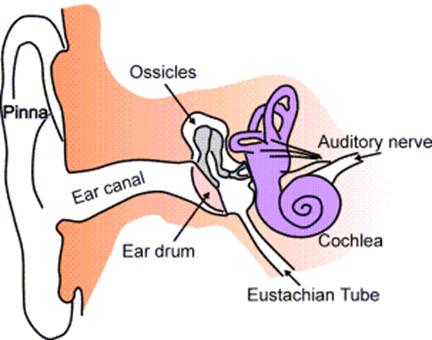You have something called the Eustachian tube inside your head:

This tube is connecting your middle ear to your nose and throat. When you fly, and the pressure inside your midlle ear is different from the pressure around you, you can feel this difference in pressure as... well... pressure in your ear - either under- or over-pressure.
This pressure is leveled out through the Eustachian tube, which is clogged under normal circumstances. This way, the Eustachian tube becomes a pressure valve, allowing small amounts of air to pass in or out, in order to align pressure in your middle ear to the air pressure around you.
Here's my theory:
When you exercise hard you breathe hard, and when you breathe hard you build up an under-pressure inside you nose, thus sucking a tiny amount of air out from your middle ear through the Eustachian tube. Since you now have an under-pressure in your middle ear, it will feel like landing after a flight; the low pressure in your ear will cause the surrounding air pressure to push harder on your ear drum.
It could also be the other way around, ie you build up over-pressure in your ear when you breathe heavily - it depends on how you breathe.
If you suck in air through your nose, you make an under-pressure.
If you blow out air through your nose, you make an over-pressure.
The solution could be to partly breathe in or out through your mouth also - this could help since your mouth passage is bigger, has a higher capacity, and thus doesn't build up such high and low local air pressure.
